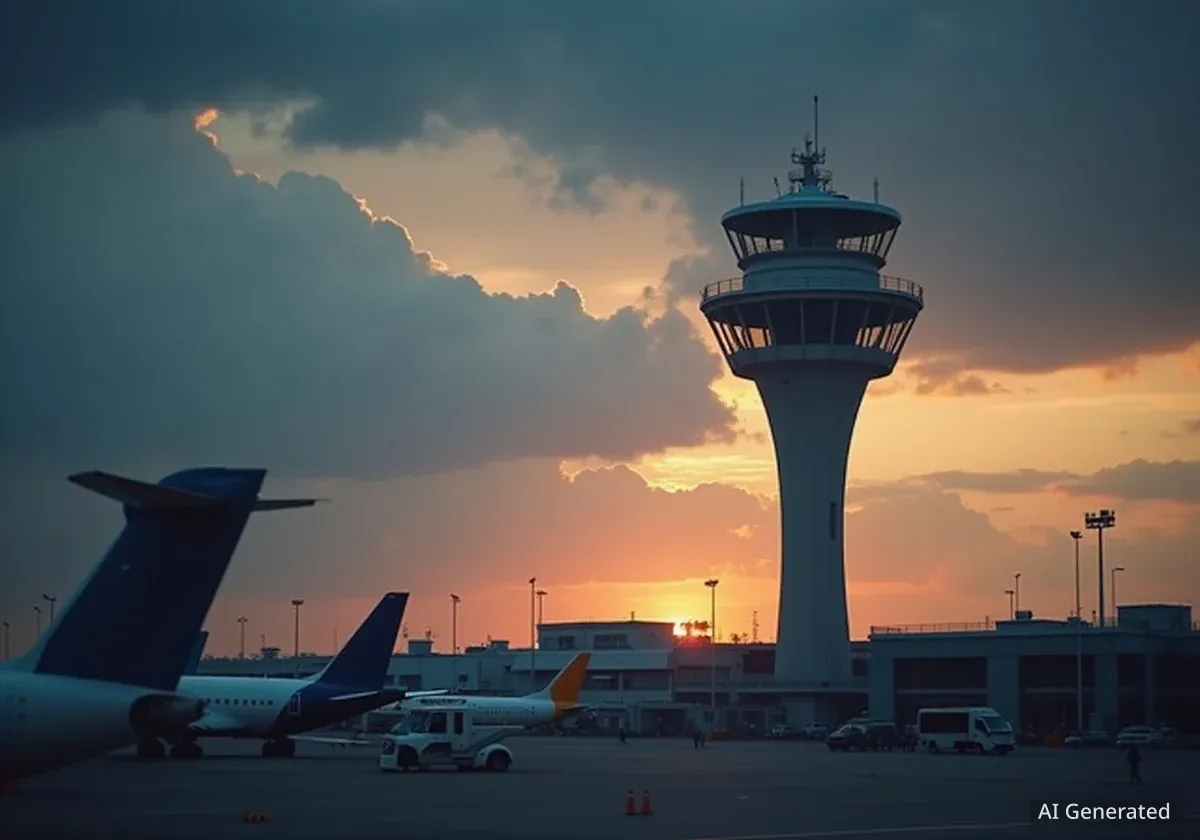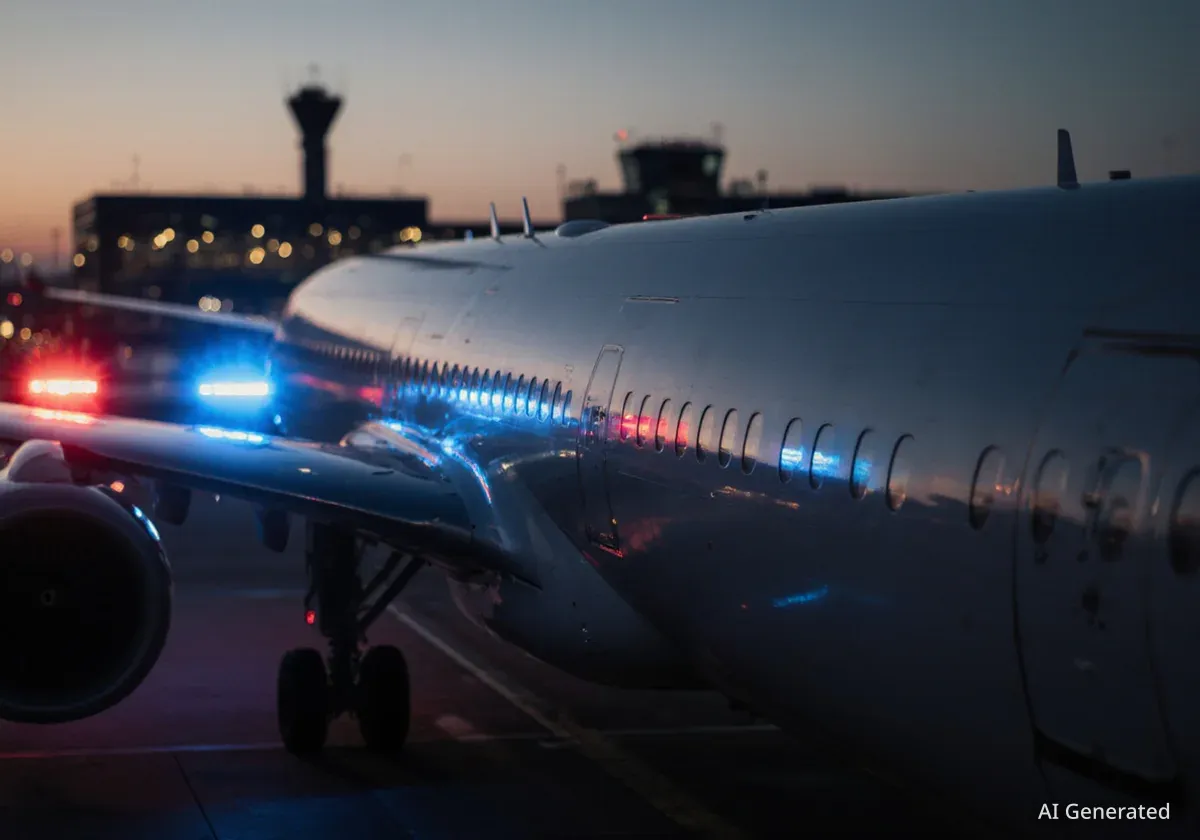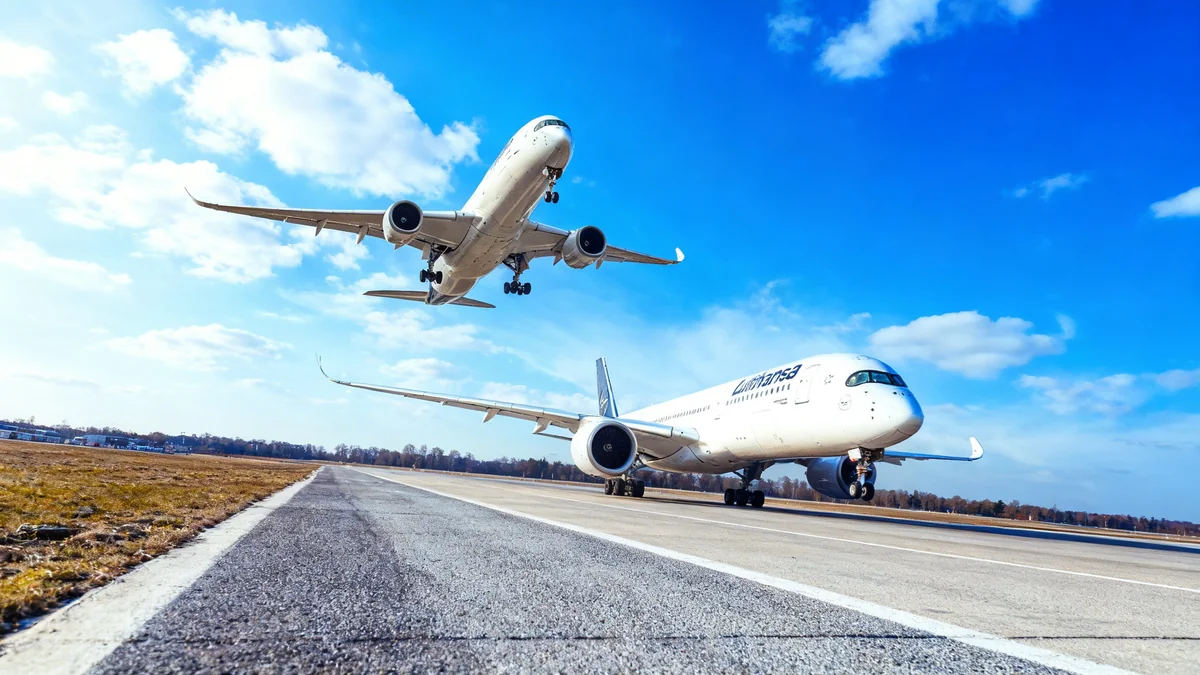Major U.S. airlines are pressing Congress to pass a stopgap funding measure. This action aims to prevent a government shutdown. A shutdown could severely impact air travel operations nationwide.
Key Takeaways
- Airlines want Congress to pass a funding bill quickly.
- A government shutdown would affect air traffic control and TSA.
- Industry leaders warn of significant disruptions and economic harm.
Airlines Warn of Shutdown Impact
The nation's largest airlines have issued a strong plea to Democratic leaders in Congress. They are urging a swift passage of a funding bill. This bill would keep the government open and prevent a shutdown.
Industry executives believe a shutdown would create chaos in the air travel system. They highlight potential disruptions to vital services. These services include air traffic control and airport security.
Fact: Air Traffic Control
Approximately 14,000 air traffic controllers are employed by the Federal Aviation Administration (FAA). During a shutdown, many of these essential personnel would be forced to work without pay.
Disruptions to Air Traffic Control
A government shutdown would immediately impact the Federal Aviation Administration (FAA). Air traffic controllers, who are federal employees, would be required to work without pay. This situation could lead to staffing shortages and increased stress among controllers.
The FAA manages over 50,000 flights daily. Any disruption to this system can cause widespread delays and cancellations. Airlines are concerned about the safety implications of such a scenario.
"A government shutdown would be catastrophic for the aviation industry and the traveling public," one airline executive stated. "It would create unacceptable risks and massive delays across the country."
TSA Operations Also at Risk
The Transportation Security Administration (TSA) would also face significant challenges. TSA officers, like air traffic controllers, are federal employees. They would also be forced to work without immediate payment.
This could lead to longer security lines and potential airport closures. Passengers would experience increased wait times and frustration. The overall travel experience would suffer greatly.
Background on Shutdowns
Government shutdowns occur when Congress fails to pass appropriation bills or a continuing resolution. Essential services, like air traffic control and national security, typically continue with furloughed staff or staff working without pay. Non-essential services cease operations.
Economic Consequences for Travel
Airlines are worried about the financial impact of a shutdown. Reduced travel due to delays and cancellations would mean significant revenue losses. The broader economy would also feel the effects.
The travel and tourism sector contributes billions to the U.S. economy annually. A shutdown could jeopardize jobs and business stability within this sector. Small businesses reliant on airport traffic would also suffer.
- Reduced Passenger Confidence: Travelers may become hesitant to book flights.
- Increased Operational Costs: Airlines incur costs from delays and re-routing.
- Impact on Cargo: Air cargo operations, vital for supply chains, would also face slowdowns.
Previous Shutdowns and Lessons Learned
Past government shutdowns have shown the severe consequences for air travel. During the 2018-2019 shutdown, air traffic control centers experienced staffing issues. This led to flight delays at major hubs like LaGuardia Airport.
The airline industry learned from these events. They are now more proactive in advocating for stable government funding. Their goal is to prevent a repeat of past disruptions.
Call for Bipartisan Action
Airline leaders are emphasizing the need for bipartisan cooperation. They believe that avoiding a shutdown is a shared responsibility. The industry wants Congress to prioritize the stability of essential services.
The appeal from airlines underscores the wide-ranging impact of political gridlock. It highlights how government funding decisions directly affect daily life and critical infrastructure.
The future of air travel in the coming weeks depends heavily on congressional action. Airlines hope their urgent message will lead to a quick resolution.





